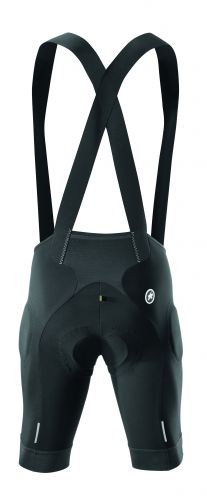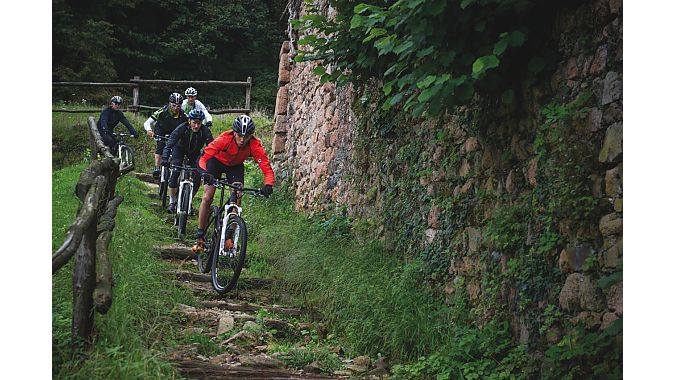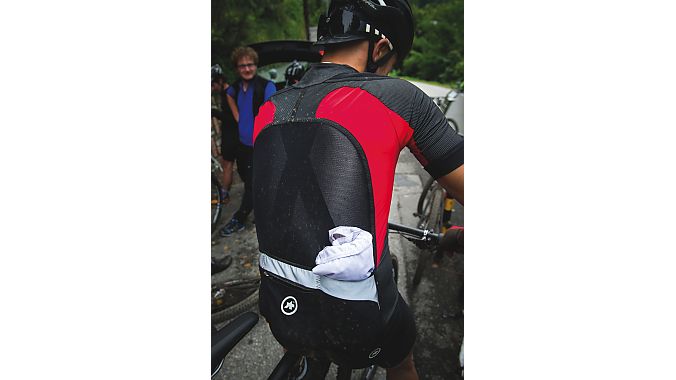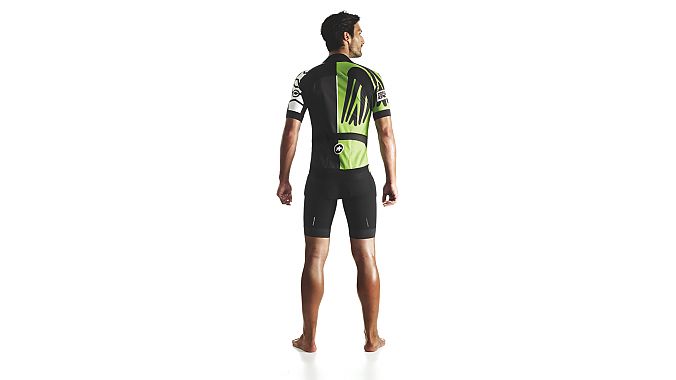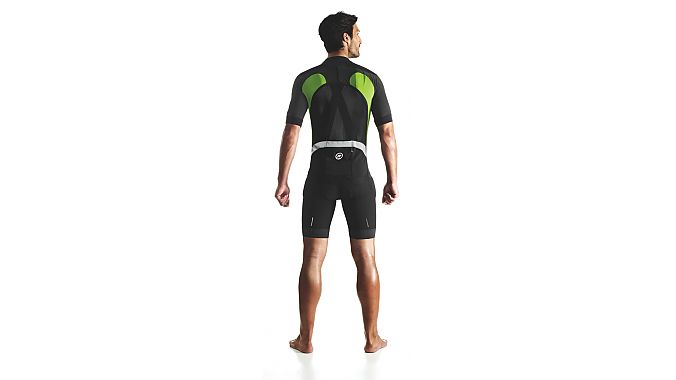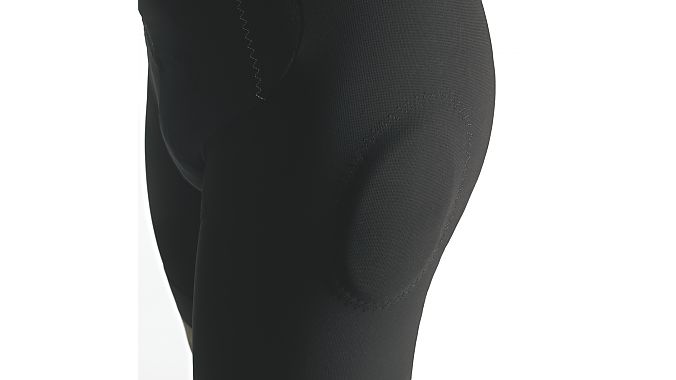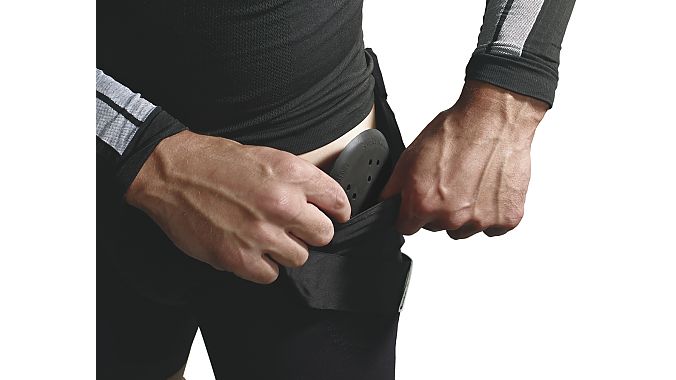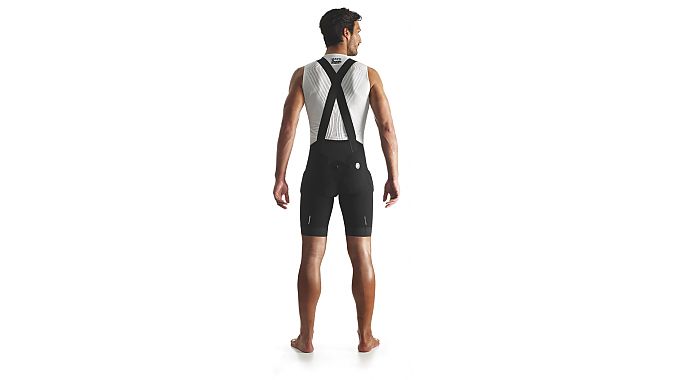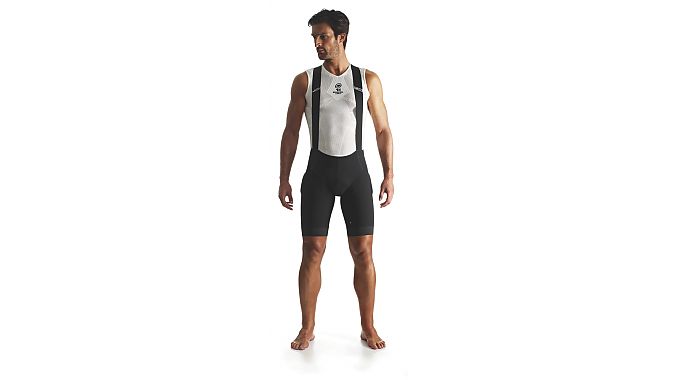LUGANO, Switzerland (BRAIN) — When Assos — the inventor of the Lycra bike short and long-time supplier of high-end roadie apparel — decided to come out with its first mountain bike line, baggy shorts were not really part of the plan.
The company recently launched its Rally mountain bike line to the international media, hosting editors at its headquarters in Ticino, the Italian-speaking region of Switzerland. Its retailers have already placed orders for the line, which includes a bib short and two jerseys and is part of the brand's 2015 summer line.
The company started work on the line about five years ago, and officials said they considered going a variety of directions, including baggy overshorts. In future seasons, overshorts (perhaps not very baggy) might be added to the line.
But for the brand's first foray offroad, it went with a targeted approach, with items aimed at cross-country racers, including participants in endurance off road events like Africa's brutal Cape Epic. The company sent two, two-man race teams to test the new products at this year's Cape Epic. Assos sponsors the event and supplies its leaders jerseys.
Assos also supplies the Swiss national race teams, and sharp eyes might spot the new Rally bibs being worn by the team in this weekend's Mountain Bike World Championships.
The off road bib is called the T.Rally Short. Its most noticeable element is removable hip pads. The rubbery, perforated pads fit into pockets on the inside of the shorts. They can be removed for washing or if the rider feels they are unnecessary. But the bibs' main material is also unusual. It's a proprietary fabric that is a bit beefier than the material used in Assos road bibs.
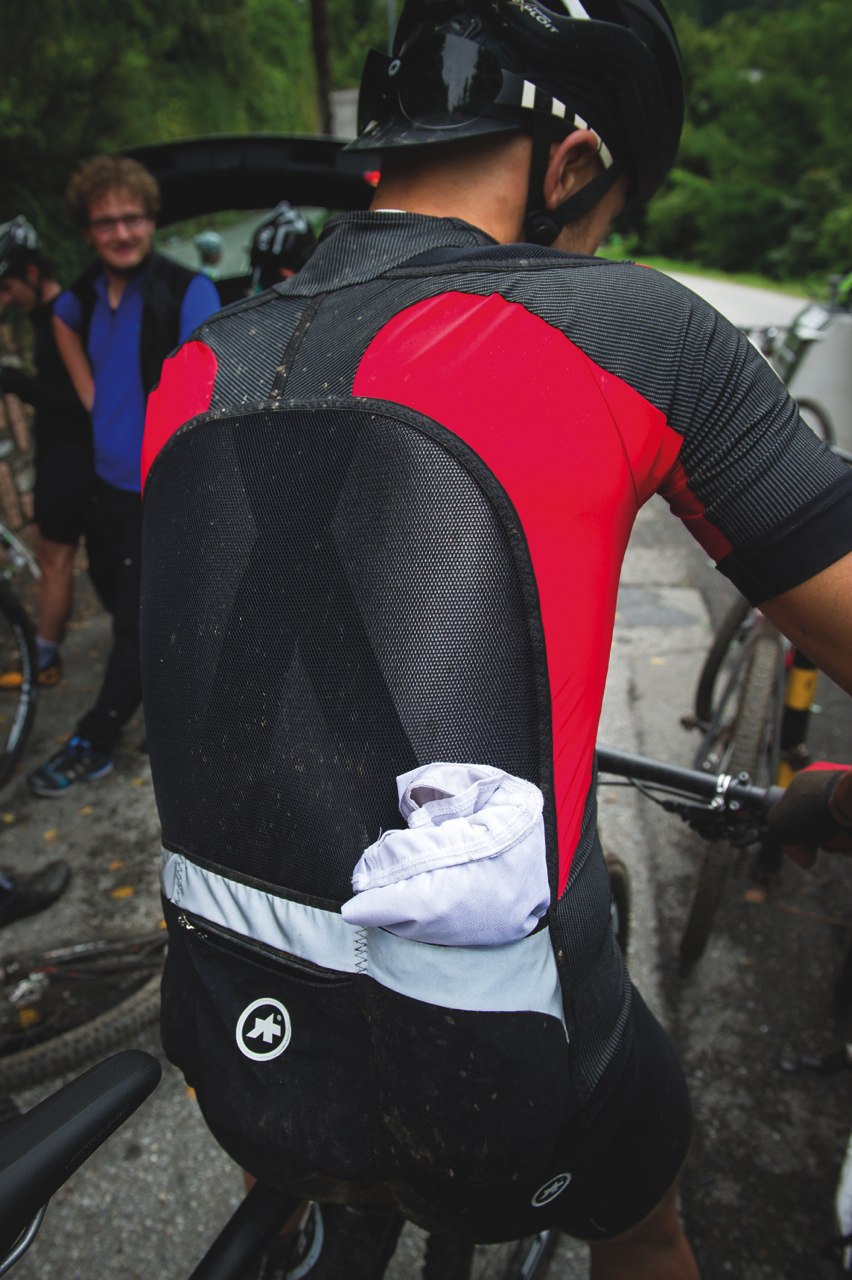
"We wanted a little bit more meat on the bone," said Omar Visentin, Assos' R&D director. The fabric is woven, instead of knit, so it has a rougher surface and a matte appearance. It has more compression than Assos' road bibs along with better resistance to abrasion and snags. The compression is said to reduce leg muscle fatigue due to offroad vibrations.
At a recent media presentation, Visentin spent more than two hours going over the bibs and the two mountain bike jerseys in detail with editors. He had plenty to talk about. The bibs have three main fabrics and 10 material patches. The jerseys are even more elaborate — the more expensive model is built with six fabrics and 25 material patches. Visentin said that jersey's complexity is comparable to Assos' winter jackets and has the highest construction costs of any Assos jersey.
That jersey is the SS. Rally Trekking jersey. Its most notable feature is a thick, see-through mesh over much of the back, similar to the spongy mesh sometimes used on the back of large backpacks. There are pieces of the same material on the shoulders. The mesh is designed to cushion the rider from a hydration pack and its straps and allow airflow between the pack and the rider.
Because the mesh allows the sun to shine through, Assos is bundling the jersey with a short sleeve Skinfoil underlayer for sun protection. The Trekking jersey also uses several proprietary fabrics that are more durable than Assos road jerseys, while still said to be lightweight and breathable.
The less expensive SS.Rally Cape Epic XC jersey has some of the same materials and features, but does not have the mesh material on the back and shoulders. This jersey will be available in three color combinations, all of which have the Cape Epic logo and the race's trademark zebra stripes, combined with some more traditional Assos design elements.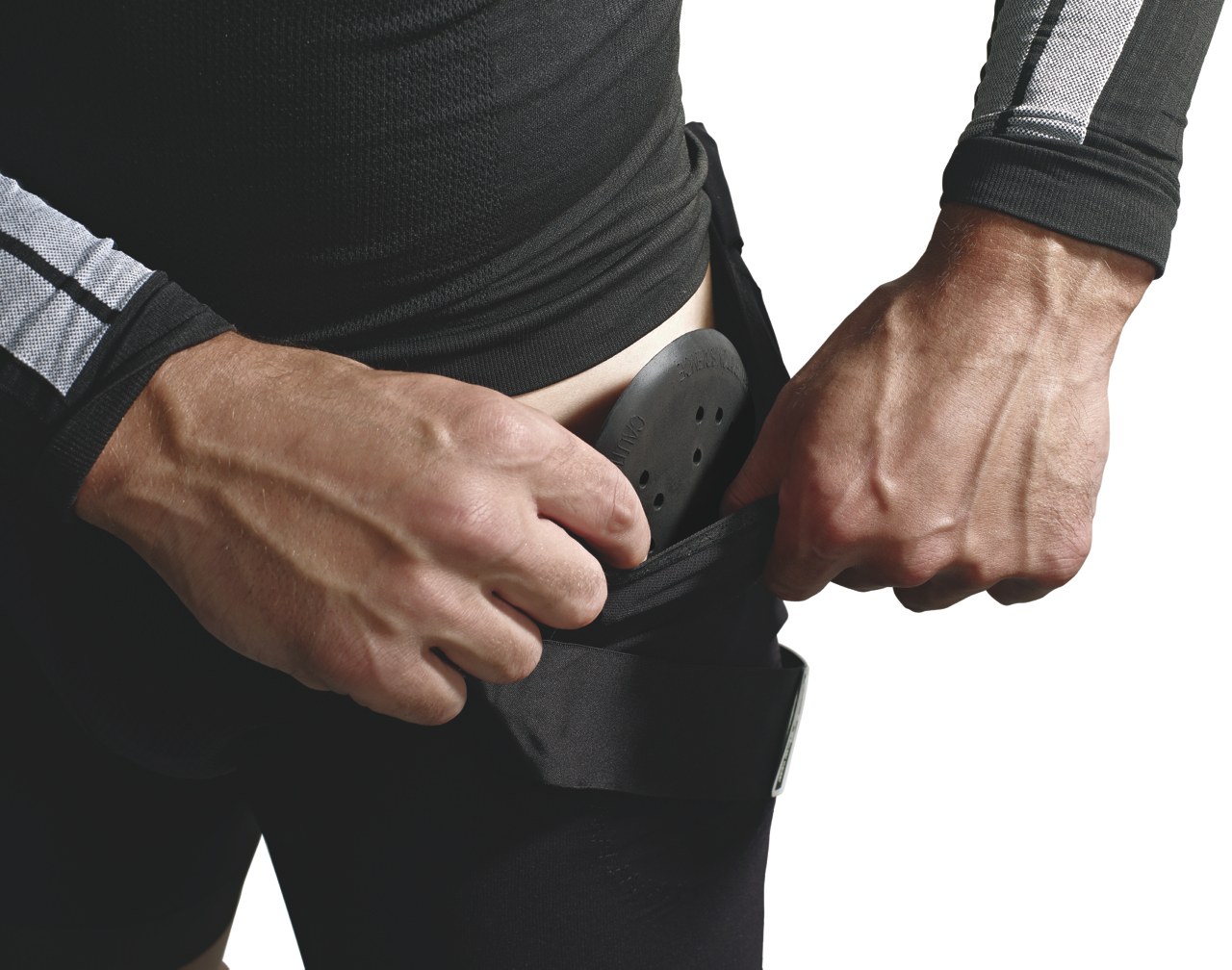
All three items are tailored to a mountain biker's riding position and movements. The bib straps, for example, allow more shoulder movement than Assos road bibs, and the straps cross in the back and are secured directly to the legs, instead of using a mesh fabric on the lower back like the company's road bibs. The attachment is said to be stronger and also involves fewer layers that could potentially create irritation with a hydration pack.
The bibs' pad is similar to the S7 road bib pads introduced last year, but have a larger padded section to accommodate mountain bikers' more dynamic positioning on the saddle.
Assos' retail pricing is sobering. The T.Rally shorts will retail for $449 in the U.S.; the Cape Epic jersey will sell for $219 and the Rally Trekking jersey, with its bundled underlayer, will retail for $399.
Company officials don't apologize for the pricing, but acknowledge that it is necessary to thoroughly educate consumers about the details of its products. It does this through dealer education, merchandising materials and by bringing the international cycling media to its headquarters for a thorough going-over, in hopes that the editors will pass on the details to their readers.
The day after Visentin's presentation, just prior to the start of Eurobike last month, the visiting media tested the new bibs and jerseys on a 37-mile mountain bike ride, often in the rain, on the rocky trails and roads near Lugano. The riding was followed the next day by a tour of the company's headquarters and factory in nearby San Pietro Di Stabio, and its retail store in Lugano.
Editor's note: Assos covered BRAIN's expenses in attending the product launch in Lugano, including lodging and travel from the Eurobike show in Germany to Lugano.

